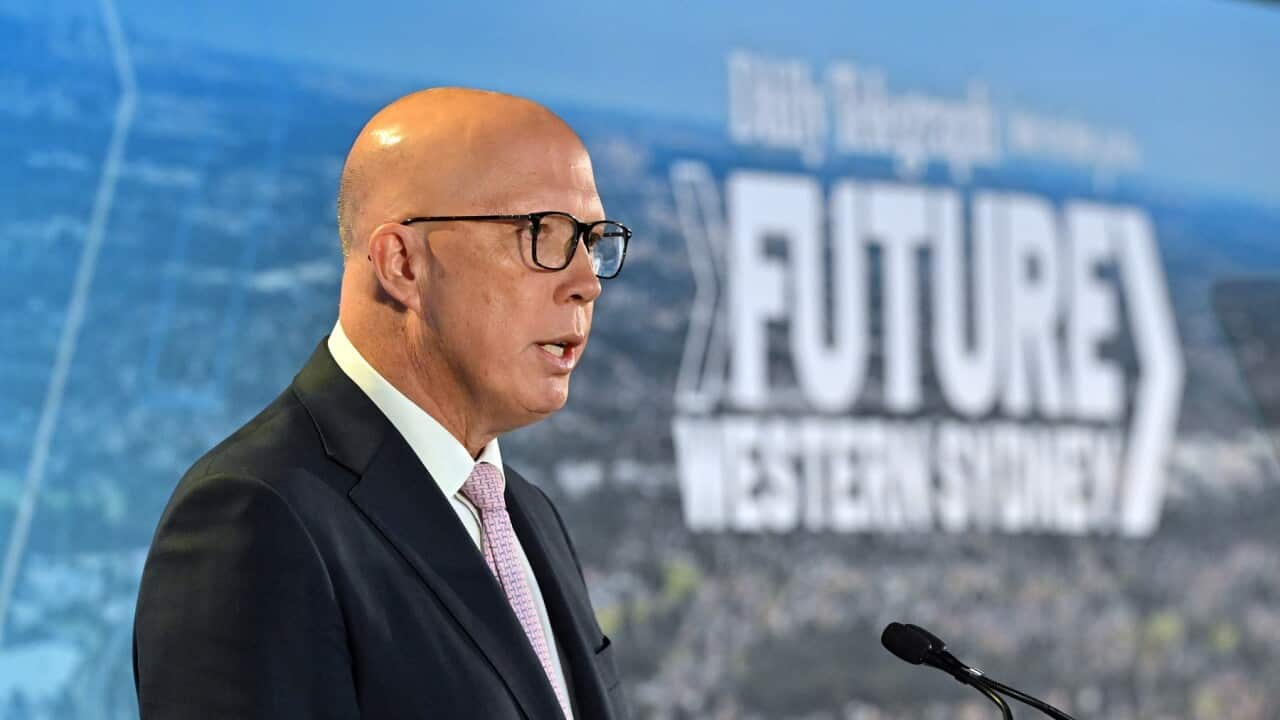TRANSCRIPT
The wave of coups in West and Central Africa continues, after military officers seized power in Gabon, placing President Ali Bongo under house arrest.
"On this day, August 30, 2023, we, the defence and security forces, meeting within the Committee for the Transition and Restoration of Institutions, on behalf of the Gabonese people and guarantor of the protection of institutions, have decided to defend peace by putting an end to the current regime. The general elections of August 26, 2023, as well as the truncated results, are cancelled. The borders are closed until further notice. All institutions of the Republic are dissolved."
That was an unidentified military officer announcing the takeover in the very early hours of the morning, overruling the August election result as fraudulent.
The coup comes a month after the military takeover in Niger ((nee-jair)), also a former French colony.
President Ali Bongo and his family have ruled for more than half a century, and the election win was set to extend their 56 years in power.
The 64-year-old president made this appeal for assistance.
"I'm to send a message to all the friends that we have all over the world to tell them to make noise, to make noise. For the people here have arrested me and my family, my son is somewhere. My wife is in another place and I'm at the residence right now. I am in the residence, nothing happening, nothing is happening. I don't know what's, what's going on.”
Hundreds took to the streets in the capital Libreville ((LEE-bruh-vill)), many cheering and applauding the news of the apparent coup.
One unnamed protester celebrated the takeover, with others also pointing to the President's failures to address issues confronting the central African country.
"Now, this is independence day, the army has freed our country. We are free. We have the right to be free and to express ourselves the way we want. Because we didn't know we could be freed, today we are free."
Shortly after, soldiers declared on national TV that General Brice Oligui Nguema ((oleh-gee geh-mah)) would be the transition leader.
Colonel Ulrich Manfoumbi said the General has ordered the restoration of international radio and TV signals on the various broadcasters.
"The President of the Transition insists on the need to maintain calm and serenity in our beautiful country. He pledges to preserve the economic tools that guarantee social prosperity. At the dawn of a new era, we will guarantee the peace, stability and dignity of our beloved Gabon."
President Bongo took over in 2009 on the death of his father Omar, who had ruled since 1967.
Opponents say the family has done little to share the state's oil and mining wealth with its 2.3 million people.
Violent unrest broke out after the President's contested 2016 election victory, and there was a foiled coup attempt in 2019.
Analyst Paul Melly says this coup is perhaps unsurprising in a frustrated political environment.
The Africa Programme Consulting Fellow at Think Tank Chatham House explains how the election was not perceived as very transparent, with no international or regional observers to monitor the process.
"People who were feeling impatient and frustrated and who felt that it was time for a change in Gabon, they were asking themselves why, after he's already done two seven-year terms, why should he be elected yet again? And in a process which doesn't look terribly transparent."
It raises the question of whether democracy is failing in African countries, as coups become ever more frequent.
There have been seven other coups in West and Central African countries in just the past three years, with neither widespread condemnation nor military intervention able to quell the takeovers.
Research specialist in Gabon at Africa Centre of France's Institute, Francois Gaulme, says the Gabon coup is similar to what happened in Niger ((nee-jair)) last month ((July 26)), where it was the presidential guard that revolted against the president.
Associate Professor Gaulme says there appears to be a pattern of coups emerging from French-speaking African countries.
"The presidential guards themselves were realising that they would be asked to conduct repressive missions, which they were maybe not willing to do, I don't know, something along those lines. But they did feel that the people had become more and more hostile towards a re-election of President Ali Bongo, especially under this elections' current conditions, since the main opponent of Ali Bongo in Saturday's election only had eight days to campaign against him. An eight-day election campaign does not exist in any country."
Analyst Paul Melly believes there's a risk of more coups in the future.
"There's certainly a risk of more coup d'etat, and that really puts the pressure on countries that have elections coming up or in the sort of near planning phase, if you like, to really show that these are fair contests that are transparently contested."
Mr Melly says it's less about a lack of support for democracy in African countries, and more related to a growing sense of frustration with the performance of re-elected leaders.
"When people welcome putschists into the street, it's because they feel that their political process, their democracy has been distorted by, as we've seen in Gabon. People a lot of people thought that this election wasn't credible. And they've welcomed the coup. If the election had been credible, that perhaps that reaction would have been different."













